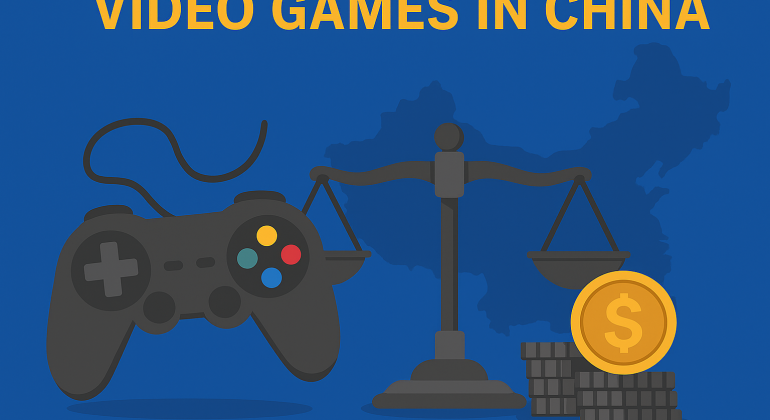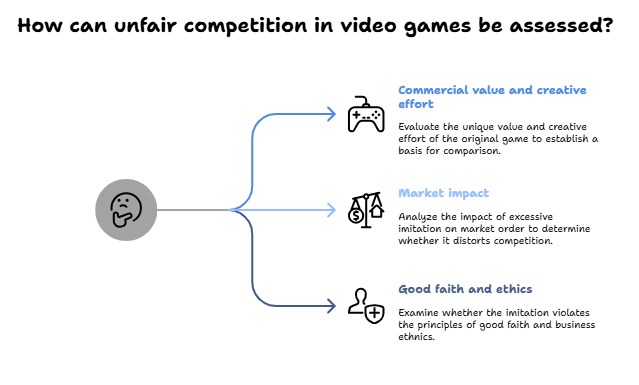Sommaire
Introduction
The Rise of Kingdoms case illustrates a notable development in the protection of intellectual property rights in China. The Guangdong High People’s Court applied unfair competition law to punish the misappropriation of game mechanics and creative elements.
This decision marks a significant step forward in recognizing the economic value of video game creations and strengthens the prospects for compensation in the event of infringement of rights.
Hearthstone and Minecraft: landmark cases
Historically, Chinese courts have favored strict enforcement of copyright law to protect video game elements. The Hearthstone case marked a first shift in this approach.
Hearthstone (2014)
The Shanghai No. 1 Intermediate People’s Court has recognized, for the first time, that gameplay, i.e., the set of rules and mechanisms of a video game, can constitute a specific intellectual creation, requiring significant investments and representing significant commercial value.
Although protection was partially granted on the basis of copyright for certain illustrations and visual elements of the video game Hearthstone, the court also ruled that the defendant had promoted its game by appropriating distinctive features of Hearthstone. Such behavior exceeded the limits of lawful imitation and violated the principles of good faith and commercial ethics consecreated in unfair competition law.
Minecraft (2022)
In a case between Minecraft and Mini World, the Guangdong High Court rejected the copyright protection granted in the first instance and instead applied the grounds for unfair competition.
The court found that the two video games were virtually identical, both in terms of gameplay and visual elements, thus constituting an unfair capture of the creative and commercial value of the Minecraft game.
This decision illustrates a turning point in case law : when copyright is insufficient to protect game mechanics, Chinese courts now rely on unfair competition to punish parasitic behavior.
Rise of Kingdoms : Guangdong High Court ruling
In the Rise of Kingdoms case, the Guangdong High People’s Court clarified the distinction between an idea and its expression. The Court reiterated that gameplay is a set of ideas, systems, or methods, which remain excluded from copyright protection under Article 3 of the Chinese Copyright Law.
The case involved a typical case of game reskinning: a practice consisting of reusing the structure, mechanics, and progression of an existing game, modifying only the graphics or theme to make it appear to be a new work.
The court ruled that this excessive and systematic imitation undermined market order and constituted an act of unfair competition.
The court ordered the infringing developer to pay 168 million yuan (approximately €21.5 million) in damages, one of the highest compensation awards ever granted in China in the video game industry.
In order to regulate this type of behavior, the court has formulated a three-part standard for assessing unfair competition in the context of video games:
- Identify the commercial value and creative effort of the original game.
- Assess the impact of excessive imitation on market order.
- Examine the violation of the principle of good faith and commercial ethics.
Good faith as a guiding principle
The Rise of Kingdoms ruling is consistent with the principles defined by the Supreme People’s Court of China. In its opinion of December 31, 2024, on the protection of technological innovation, article 18 reiterates that unfair competition law must be guided by the principles of good faith and business ethics in order to combat new forms of parasitism and promote an innovative and fair market.
As gameplays become more and more complex, copyright alone appears insufficient to protect studios’ intellectual investments.
The concept of unfair competition thus fills these gaps, offering more flexible protection tailored to the specific characteristics of the video game industry.
Conclusion
The Rise of Kingdoms case confirms the growing importance of unfair competition law in protecting digital creations in China.
In a constantly evolving sector, good faith becomes a key tool for ensuring a balance between reasonable borrowing, which is necessary to stimulate the market, and the protection of original innovation.
Chinese courts are thus affirming a pragmatic approach aimed at preserving the competitiveness and creativity of the video game market.
Dreyfus Law firm assists its clients in managing complex intellectual property cases, offering personalized advice and comprehensive operational support for the complete protection of intellectual property.
Nathalie Dreyfus with the assistance of the entire Dreyfus team.
FAQ
1. What is “game reskinning”?
Game reskinning refers to modifying the appearance of an existing game, including its graphics, characters, sounds, and visual presentation, while keeping its internal structure unchanged (rules, objectives, obstacles, and rewards). The result gives the impression of a new game, even though it relies on the same underlying mechanics.
2. Can the rules or mechanics of a video game be protected by copyright in China?
No. According to the Guangdong High People’s Court, game mechanics are considered ideas, systems, or methods, and therefore do not fall under copyright protection. Only the specific visual representation of those mechanics, such as graphics, user interface, or sound design, can be protected.
3. If game mechanics are not protected by copyright, can they be freely copied?
Not exactly. While the imitation of game mechanics is not prohibited in itself, it may constitute unfair competition if it exceeds what is considered reasonable within the industry and causes significant harm to a competitor.
4. Why is good faith a central principle?
Because it allows legitimate inspiration to be distinguished from parasitism. Using key elements of a game without authorization to quickly launch a competing product and poach its players is contrary to good faith and may be punished.
5. What impact will this have on the video game industry?
It is no longer sufficient to rely solely on copyright to protect your game. Chinese courts now also use unfair competition law to punish certain abusive “reskinning” practices and can award significant damages.


